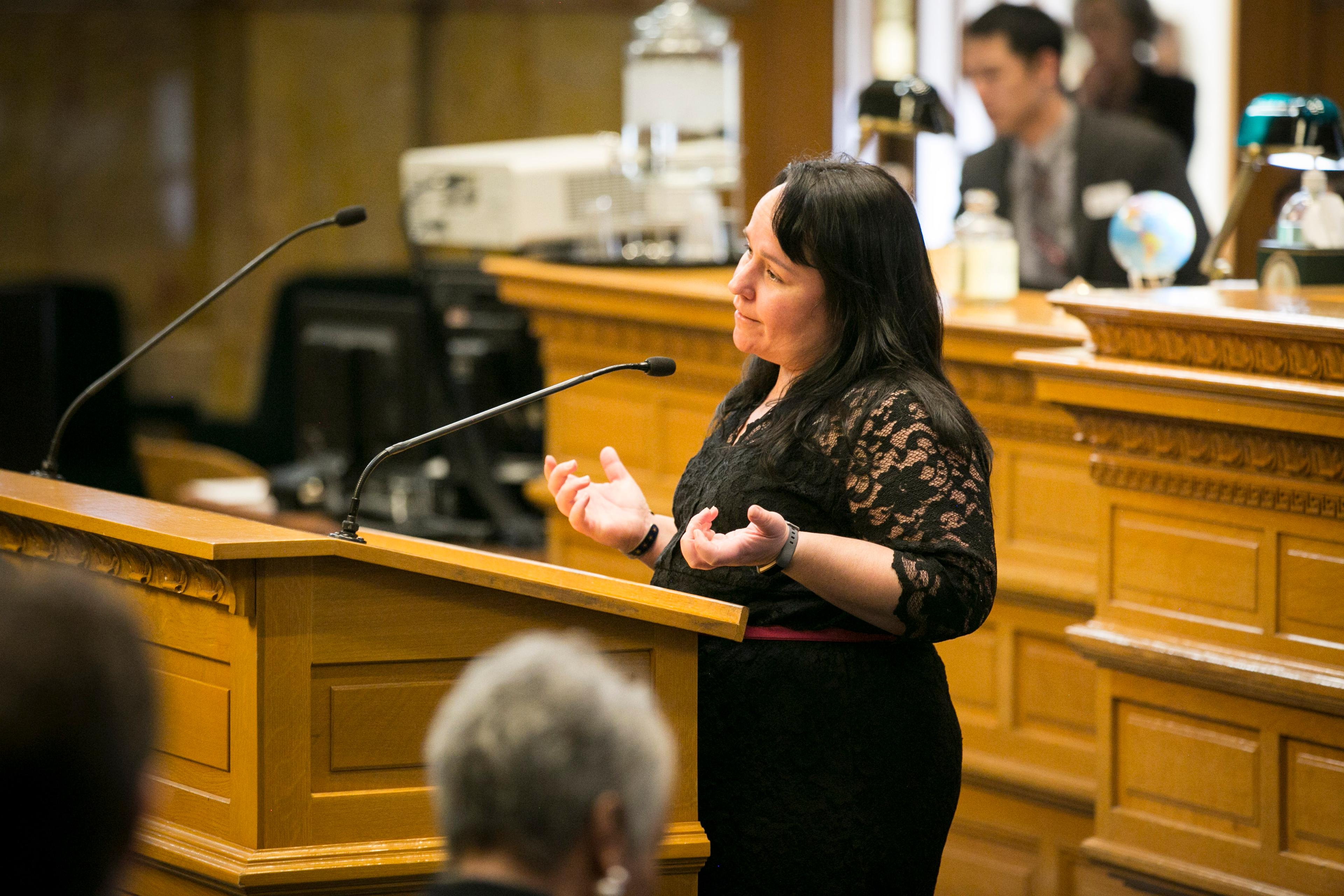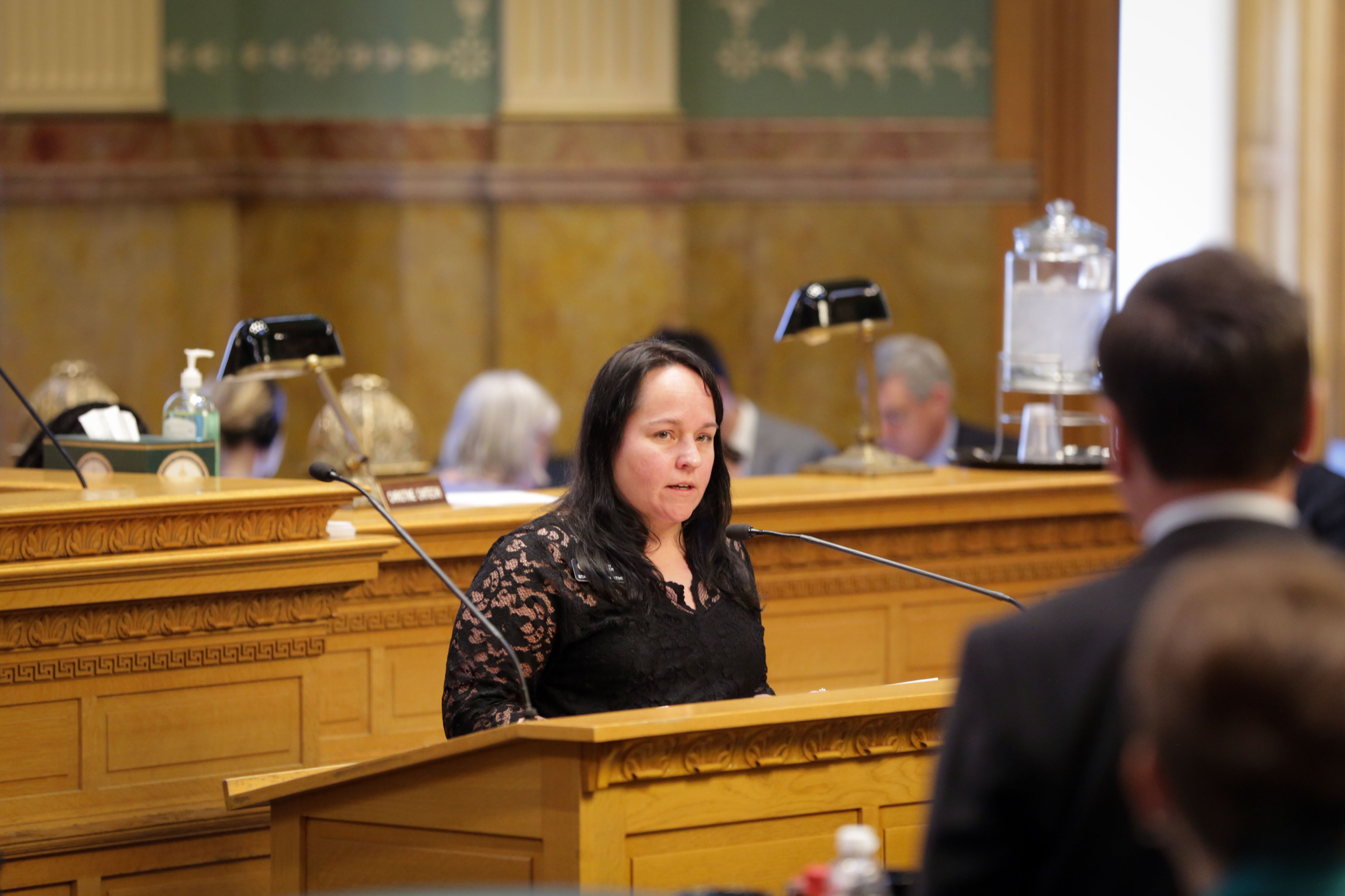

There are less than three weeks to go before the legislative session ends and efforts to reform how the Capitol handles workplace harassment appear to just now be gaining some traction. Many questions remain unanswered though, and the largest might be whether the legislature has the bandwidth to rewrite such sensitive policies in these final days while still juggling other major bills.
On Monday, Sen. Faith Winter, D-Westminster, and Sen. Bob Gardner, R-Colorado Springs, are expected to introduce a bill that would require details of credible workplace harassment complaints against state lawmakers to be released to the public. Currently, those investigations are not covered by Colorado's open records statute. A complaint only becomes public if an accuser or accused releases it.
Since the fall of 2017, the state legislature has spent nearly $400,000 dealing with workplace harassment. That figure includes investigations, attorneys fees, and the hiring of an HR person after allegations came to light. Investigations Law Group was paid $120,000 to study the Capitol’s culture and recommend changes. They concluded:
“More than a quarter of your workplace has seen or experienced harassment, and almost half have seen or experienced sexist behaviors. Yet, only 18 have reported these events. This is a serious indicator that the present system is inadequate to detect and deter workplace harassment.”
The Capitol’s problem with sexual harassment first became public when Winter came forward to KUNC in November 2017 to accuse former Democratic Rep. Steve Lebsock of sexual harassment. He was eventually expelled from office.
“We need a policy to go along with the changes that started to happen last year, but we're not done,” Winter said recently. “We know we did that report where it said most of the people that work in this building had seen harassment and the number one reason that they didn't come forward was fear of retaliation. You can't get rid of that fear of retaliation until you change the policy.”
Winter was ready to introduce a more comprehensive measure weeks ago that would have included many of the consultant’s recommendations, but her effort stalled due to confusion behind the scenes.
Updating the Capitol’s workplace harassment policy presents a complex and thorny procedural puzzle. Many changes can’t be done with just a regular bill. Some require separate rule changes in both the House and the Senate. Others would have to be done as a joint rule change. All of those would require a two-thirds vote in both chambers. And finally, some policy changes need the sign off from legislative leaders in both chambers and both parties.
One rule change Senate leaders hope to pass would create a new committee, with an equal number of Republicans and Democrats, to handle investigations, instead of Senate leaders.
“Our intention is to not just pass something so we can say, ‘We're done with that problem’ ... but to actually get it right,” Democratic Senate Majority Leader Steve Fenberg said. “And this is incredibly important, not for us right now in this moment in time, but for the future.”
But there is little agreement among lawmakers on one sensitive issue: how much anonymity accusers should get. Other outstanding questions include whether lobbyists should be added to the workplace harassment policy so they could be held accountable if they harass someone and how many additional HR staff should be hired.
Accusers Speak Out
As the end of the session approaches without any concrete proposals introduced, accusers say they are angry at the lack of action so far. And they worry about the very real possibility that nothing meaningful may get done.
“It makes me wonder why we put so much on the line,” said former lobbyist Holly Tarry. She also filed a sexual harassment complaint against Lebsock. “It was a huge sacrifice, especially for the people who are still working there, and it's an absolute slap in the face for them to not fundamentally change the culture.”
Former intern Danielle Giffin, who is now in college, filed a sexual harassment complaint against Republican Sen. Jack Tate and said the inaction feels like lawmakers want to put everything that happened last year under the rug and go back “to the boys’ club before people knew.” Giffin wants to see the legislature prioritize making the Capitol safer for the hundreds of people who work there, many of them young interns and legislative aides.
“I vote. I pay taxes. So, you work for me," Giffin said. “And this isn't what people wanted. They wanted to see this change.”
The situation is also disheartening for those who work against sexual violence, and those who believed it would be easier to get something done now that Democrats control both chambers.
“It seems like the ball just kind of keeps getting passed to someone else without anything actually happening. So when is something going to happen?” asked Brie Franklin, the head of the Colorado Coalition Against Sexual Assault. “It definitely is frustrating when last session it was talked about that they were going to do something.”
She added, “I think victims and those who choose to harass others are watching. They haven't forgotten about this.”
In a recent media briefing, Senate President Leroy Garcia said he’s committed to passing a robust and practical policy.
Democratic House Speaker KC Becker said she wanted to improve the culture during her opening day speech back in January. But Democrats in the House confirm to CPR the topic hasn’t come up during any of the weekly caucus meetings in the last three months.
The Speaker could not be reached by publication time.
Whatever is introduced now will have to share what’s left of the legislative session with other big bills. Democrats are trying to get their major priorities across the finish line, including free full-day kindergarten, paid family leave, climate change policies, comprehensive sex education reform, and equal pay for equal work, among many others.
“[This issue has] been sitting out there since last year,” said former Democratic Senate President Joan Fitz-Gerald, the first woman to lead the chamber. “I mean, it could have been the first order of business.”
Speaking of how legislative leaders handled last year’s credible allegations against a handful of state lawmakers, Fitz-Gerald said, “some of us care about the institution itself and how damaged it got through the revelations and the kind of shenanigans that went on … I thought it was an honor to serve and that certainly didn't make it look like an honorable place.”








